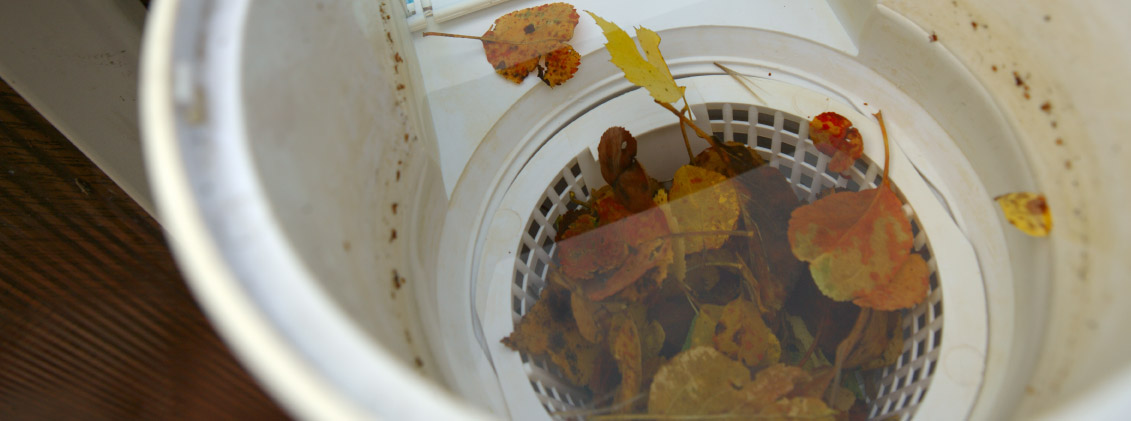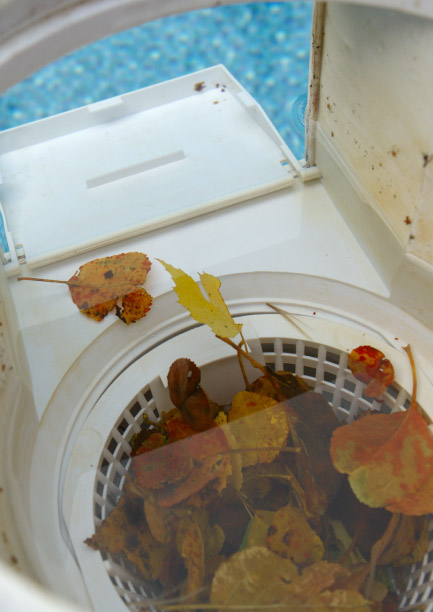Here Are The Different Types Of Pool Filters
If you own a swimming pool or are planning to invest in one, it's essential to understand the importance of pool filtration systems. Pool filters play a crucial role in maintaining clean and clear water by removing dirt, debris, and impurities. There are various types of pool filters available on the market, each with its own set of advantages and considerations. In this article, we will explore the different types of pool filters to help you make an informed decision for your pool maintenance needs.

So What Are The Different Types?
Sand Filters
Sand filters are one of the most common and widely used types of pool filters. They consist of a tank filled with a specific grade of sand, which acts as the filtration medium. As water passes through the sand bed, particles and impurities are trapped, while the filtered water returns to the pool. Sand filters are known for their effectiveness in removing larger debris and contaminants such as leaves, grass, and bugs. They offer a cost-effective filtration solution for residential pools and are relatively low maintenance. Periodically, the sand needs to be backwashed to flush out trapped debris and rejuvenate the filter’s efficiency. Sand filters are durable and can last for several years before requiring sand replacement.
Cartridge Filters
Cartridge filters are another popular choice for pool owners. These filters utilise a pleated cartridge made of polyester fabric as the filtration medium. As water passes through the cartridge, debris and particles are trapped, resulting in clean water returning to the pool. Cartridge filters offer excellent filtration efficiency, capable of capturing even small particles down to 10-15 microns in size. They provide superior water clarity and require less water for backwashing compared to sand filters. Maintenance is relatively easy, requiring periodic cleaning or replacement of the cartridge depending on the filter’s condition and the amount of debris in the pool. Cartridge filters are ideal for smaller pools and those with limited space for equipment, as they are compact and do not require a separate backwash valve. However, if you are in need of a pool filter upgrade, consider the options in this article to help you make the most informed choice.
Diatomaceous Earth (DE) Filters
DE filters are highly efficient and offer superior filtration performance. They use a fine, white powder called diatomaceous earth, which coats a series of grids inside the filter. As water passes through the grids, the DE powder traps impurities, ensuring clean water returns to the pool. DE filters can capture even the smallest particles, providing exceptional water clarity down to 2-5 microns in size. These filters are particularly effective at removing fine debris like dust, pollen, and algae. DE filters require regular backwashing to remove accumulated debris and adding fresh DE powder to maintain their effectiveness. While they offer excellent filtration, DE filters tend to be more expensive than other types and require more maintenance. They are commonly used in commercial or larger residential pools that demand high filtration standards.

Cartridge DE Filters
Cartridge DE filters combine the advantages of cartridge filters and DE filters to provide efficient and effective pool filtration. These filters feature a series of pleated cartridges coated with diatomaceous earth. The cartridges trap debris and particles, while the DE powder enhances filtration performance and captures smaller contaminants. Cartridge DE filters offer excellent water clarity and filtration efficiency, similar to DE filters, but with reduced maintenance requirements. They require less frequent backwashing and have a longer time between DE powder replacements. Cartridge DE filters are a popular choice for residential pools that require superior filtration without the extensive maintenance associated with traditional DE filters.
Hybrid Filters
Hybrid filters combine the advantages of different filtration methods to optimise performance. These filters typically combine elements of sand, cartridge, and DE filters to offer efficient and effective pool filtration. The specific combination and design can vary among manufacturers. Hybrid filters are known for their versatility and ability to handle different types of debris and particles. They require less maintenance compared to DE filters and offer enhanced filtration performance compared to traditional sand or cartridge filters. Hybrid filters are a suitable option for pool owners who want a balance between efficiency, ease of maintenance, and performance.
Zeolite Filters
Zeolite filters are a newer and eco-friendly option in pool filtration. Zeolite is a natural mineral that has exceptional filtration properties. It can capture particles as small as 3 to 5 microns, providing superior water clarity. Zeolite filters require less frequent backwashing and use less water compared to traditional sand filters. They also have the added benefit of reducing chloramine formation, which can help improve water quality and reduce the need for excessive chemical use. Zeolite filters are gaining popularity among environmentally conscious pool owners who prioritise sustainability and water conservation.

Honourable Mention: Saltwater Chlorination Systems
While not strictly pool filters, saltwater chlorination systems deserve mention as they contribute to the overall water quality in pools. These systems use salt cells to convert salt into chlorine, which helps sanitise the water. Saltwater chlorination systems offer a more gentle and natural swimming experience compared to traditional chlorine pools. They require less chlorine maintenance and reduce the potential for skin and eye irritation. However, it’s important to note that these systems do not eliminate the need for pool filters but work in conjunction with them to maintain water clarity and sanitation.
Conclusion
When choosing a pool filter, consider factors such as the size of your pool, the amount of debris it attracts, maintenance requirements, and your budget. It’s also important to properly size the filter to match the volume of water in your pool for optimal filtration performance.
In conclusion, selecting the right pool filter is crucial for maintaining clean and clear water in your swimming pool. Whether you opt for a sand filter, cartridge filter, DE filter, cartridge DE filter, hybrid filter, zeolite filter, or even a saltwater chlorination system, each type offers its own set of benefits and considerations. Understanding the different types of pool filters and their features will empower you to make an informed decision that best suits your pool’s needs. Remember, regular maintenance and cleaning are key to ensuring the longevity and effectiveness of your chosen pool filter, allowing you to enjoy a refreshing and pristine swimming experience all season long.
Here Are The Different Types Of Pool Filters
If you own a swimming pool or are planning to invest in one, it's essential to understand the importance of pool filtration systems. Pool filters play a crucial role in maintaining clean and clear water by removing dirt, debris, and impurities. There are various types of pool filters available on the market, each with its own set of advantages and considerations. In this article, we will explore the different types of pool filters to help you make an informed decision for your pool maintenance needs.

So What Are The Different Types?
Sand Filters
Sand filters are one of the most common and widely used types of pool filters. They consist of a tank filled with a specific grade of sand, which acts as the filtration medium. As water passes through the sand bed, particles and impurities are trapped, while the filtered water returns to the pool. Sand filters are known for their effectiveness in removing larger debris and contaminants such as leaves, grass, and bugs. They offer a cost-effective filtration solution for residential pools and are relatively low maintenance. Periodically, the sand needs to be backwashed to flush out trapped debris and rejuvenate the filter’s efficiency. Sand filters are durable and can last for several years before requiring sand replacement.
Cartridge Filters
Cartridge filters are another popular choice for pool owners. These filters utilise a pleated cartridge made of polyester fabric as the filtration medium. As water passes through the cartridge, debris and particles are trapped, resulting in clean water returning to the pool. Cartridge filters offer excellent filtration efficiency, capable of capturing even small particles down to 10-15 microns in size. They provide superior water clarity and require less water for backwashing compared to sand filters. Maintenance is relatively easy, requiring periodic cleaning or replacement of the cartridge depending on the filter’s condition and the amount of debris in the pool. Cartridge filters are ideal for smaller pools and those with limited space for equipment, as they are compact and do not require a separate backwash valve. However, if you are in need of a pool filter upgrade, consider the options in this article to help you make the most informed choice.
Diatomaceous Earth (DE) Filters
DE filters are highly efficient and offer superior filtration performance. They use a fine, white powder called diatomaceous earth, which coats a series of grids inside the filter. As water passes through the grids, the DE powder traps impurities, ensuring clean water returns to the pool. DE filters can capture even the smallest particles, providing exceptional water clarity down to 2-5 microns in size. These filters are particularly effective at removing fine debris like dust, pollen, and algae. DE filters require regular backwashing to remove accumulated debris and adding fresh DE powder to maintain their effectiveness. While they offer excellent filtration, DE filters tend to be more expensive than other types and require more maintenance. They are commonly used in commercial or larger residential pools that demand high filtration standards.

Cartridge DE Filters
Cartridge DE filters combine the advantages of cartridge filters and DE filters to provide efficient and effective pool filtration. These filters feature a series of pleated cartridges coated with diatomaceous earth. The cartridges trap debris and particles, while the DE powder enhances filtration performance and captures smaller contaminants. Cartridge DE filters offer excellent water clarity and filtration efficiency, similar to DE filters, but with reduced maintenance requirements. They require less frequent backwashing and have a longer time between DE powder replacements. Cartridge DE filters are a popular choice for residential pools that require superior filtration without the extensive maintenance associated with traditional DE filters.
Hybrid Filters
Hybrid filters combine the advantages of different filtration methods to optimise performance. These filters typically combine elements of sand, cartridge, and DE filters to offer efficient and effective pool filtration. The specific combination and design can vary among manufacturers. Hybrid filters are known for their versatility and ability to handle different types of debris and particles. They require less maintenance compared to DE filters and offer enhanced filtration performance compared to traditional sand or cartridge filters. Hybrid filters are a suitable option for pool owners who want a balance between efficiency, ease of maintenance, and performance.
Zeolite Filters
Zeolite filters are a newer and eco-friendly option in pool filtration. Zeolite is a natural mineral that has exceptional filtration properties. It can capture particles as small as 3 to 5 microns, providing superior water clarity. Zeolite filters require less frequent backwashing and use less water compared to traditional sand filters. They also have the added benefit of reducing chloramine formation, which can help improve water quality and reduce the need for excessive chemical use. Zeolite filters are gaining popularity among environmentally conscious pool owners who prioritise sustainability and water conservation.

Honourable Mention: Saltwater Chlorination Systems
While not strictly pool filters, saltwater chlorination systems deserve mention as they contribute to the overall water quality in pools. These systems use salt cells to convert salt into chlorine, which helps sanitise the water. Saltwater chlorination systems offer a more gentle and natural swimming experience compared to traditional chlorine pools. They require less chlorine maintenance and reduce the potential for skin and eye irritation. However, it’s important to note that these systems do not eliminate the need for pool filters but work in conjunction with them to maintain water clarity and sanitation.
Conclusion
When choosing a pool filter, consider factors such as the size of your pool, the amount of debris it attracts, maintenance requirements, and your budget. It’s also important to properly size the filter to match the volume of water in your pool for optimal filtration performance.
In conclusion, selecting the right pool filter is crucial for maintaining clean and clear water in your swimming pool. Whether you opt for a sand filter, cartridge filter, DE filter, cartridge DE filter, hybrid filter, zeolite filter, or even a saltwater chlorination system, each type offers its own set of benefits and considerations. Understanding the different types of pool filters and their features will empower you to make an informed decision that best suits your pool’s needs. Remember, regular maintenance and cleaning are key to ensuring the longevity and effectiveness of your chosen pool filter, allowing you to enjoy a refreshing and pristine swimming experience all season long.


